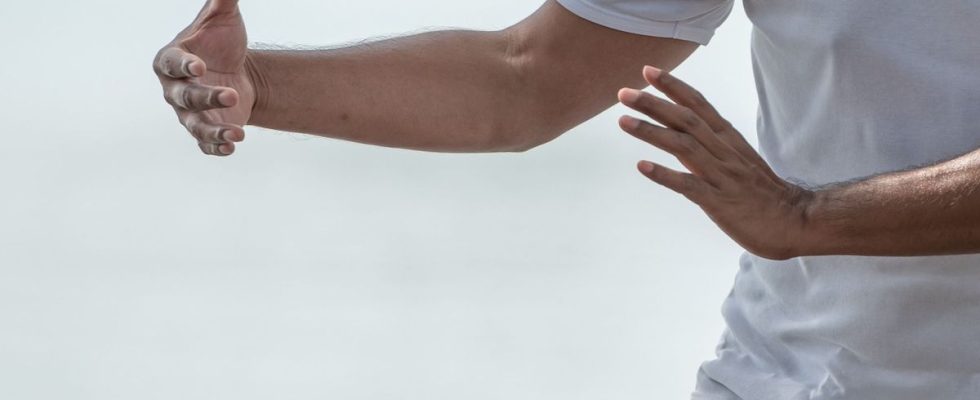Published on
Updated
Reading 3 min.
Blood pressure problem? Practicing a particular sport could greatly help you… and bring you other benefits too! Ready to find out?
Physical activity may be effective in lowering blood pressure in people with hypertension, a new study suggests. But not only ! This exercise would also reduce stress, improve mood as well as heart health.
Tai chi to lower blood pressure
Researchers studied the effects of tai chi on 342 participants with hypertension. The aim was to compare the difference between the long-term effects of tai chi and aerobic exercise on changes in their blood pressure.
The participants were aged 18 to 65 and divided into two groups. The first performed four 60-minute tai chi sessions every week for a year. The second performed aerobic exercises following the same number of sessions and same duration.
The results ? After a year, the researchers noticed a significant change in blood pressure in both groups. However, the drop in the group who practiced tai chi was greater (around 7.01 mm Hg) than for those who performed the aerobic exercises (around 4.61 mm Hg). These results seem rather reliable in view of the size of the sample and the duration of the study. Tai chi therefore presents itself as an ideal solution for people seeking to control their blood pressure.
Between reduced anxiety, depression and sleep problems…an activity with many benefits
According to the study results, lowering blood pressure is not the only benefit of tai chi. This activity also has mental and physical health benefits such as reduced anxiety, depression, improved sleep and cognitive performance as well as better heart health.
Doctor Joseph Daibes specifies: “The study results offer valuable information to healthcare providers and patients. Tai chi, as a mind-body exercise, may offer unique benefits beyond traditional aerobic activities, such as reduced stress, improved relaxation, and improved mental focus, which could contribute to its superior effectiveness in lowering blood pressure.”
Joe Petreycik, nurse and physiotherapist at Bridgeport Hospital, explains: “Tai Chi exercise is characterized by slow, focused movements, which involves meditative breathing and mindfulness.” Since meditation is an effective technique for reducing stress and lowering blood pressure, it is only natural that tai chi would have similar benefits.
In addition, tai chi is extremely gentle on the body, making it accessible to a large number of people. “It’s not like your usual high-intensity workouts; it is rather a peaceful dance that is good for the soul“, explains Dr. Daibes.
According to Dr. John Higgins, professor and sports cardiologist at UT Health Houston, this activity improves muscle strength, balance, flexibility. It increases bone density, strengthens the immune system and reduces cardiovascular diseases. Tai chi therefore represents a holistic approach to well-being.
Other ways help reduce the risk of hypertension
To obtain benefits more quickly, tai chi can be accompanied by other means. Researcher Daibes says: “Regular exercise, such as brisk walking or swimming, combined with a healthy diet rich in fruits, vegetables and whole grains, can make a significant difference in reducing blood pressure”.
This is the case of the Mediterranean diet, healthy for the heart, which can be a very good complement to tai chi and help reduce blood pressure. This diet focuses on a wide variety of foods rich in: fiber, proteins low in saturated fats and cholesterol, and unsaturated fats such as nuts, seeds and oils.
To reduce hypertension, it is also important to manage your weight, reduce your sodium intake, limit your alcohol consumption, quit smoking and sleep well. Additional deep breathing or meditation exercises also help with better stress management. For optimal results on your blood pressure, the main thing is to combine several of these habits and integrate them into your lifestyle.
